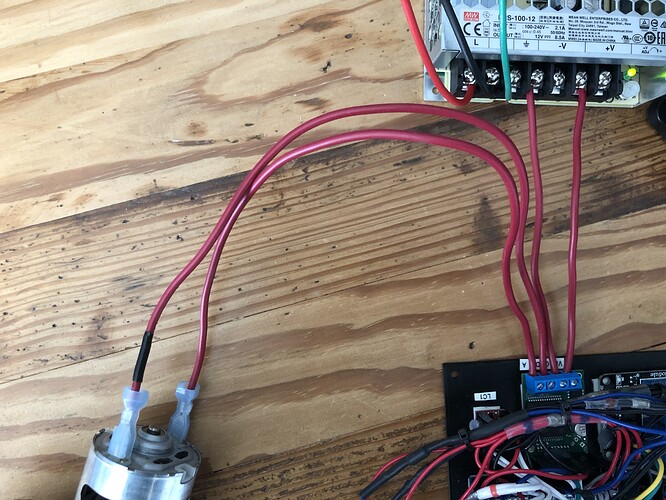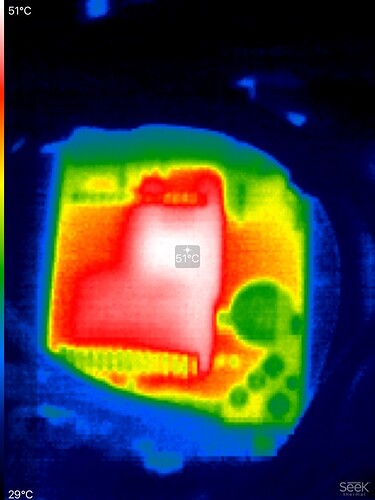I am using a VHH5019 to drive a Transmotec 12V DC motor. (4.3A nominal, 22.5A starting)
The motor power-supply is an enclosed 12V unit rated at 8.5A. The logic side VDD comes from a Raspberry Pi, at 3.3V. +3.3V to INA, GND to INB, Raspberry Pi 3.3V PWM on PWM.
I’m accelerating smoothly by ramping up the PWM, and there is no load on the motor.
I’m getting fault conditions, seemingly at random. They occur more often at slightly higher RPMs (at 5,000 RPM, I almost always get one within 2 minutes, whereas at 2,500, sometimes it never faults… though sometimes it faults in 10 seconds.) DIAGA goes to 122.6mV, DIAGB stays high at 3.3V.
According to the CS line, (double-checked with a Kill-a-watt) it’s drawing less than 1 Amp while at speed. The chip never exceeds about 55 degrees C, as measured with a thermal imaging camera, and frequently the fault condition happens when it’s as cool as 32 - 35C. (It has never been too hot to comfortably hold my finger on the chip.)
If I clear the fault by toggling INA and INB with PWM at 0, it immediately springs back to life.
I have two of these driver boards, and they both exhibit the same problem, which makes the odds of a faulty board pretty tiny… it must be a configuration issue.
I tried putting a heat sink on the chip just in case, and it seems to have made the problem worse. That’s probably random variation, but it definitely did not help.
Where to go from here? Any suggestions?



